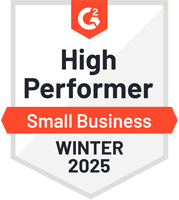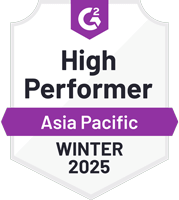Are you looking to enhance on-page optimization for your website and boost its visibility on search engines? Implementing effective strategies to improve your site’s SEO can make a significant difference in driving organic traffic and increasing your online presence. From optimizing meta tags and headings to enhancing internal linking structure, there are various techniques you can employ to elevate your website’s performance. In this article, we will explore actionable tips and best practices to help you enhance your on-page optimization and achieve better search engine rankings. Stay tuned to discover how you can take your website to the next level through strategic SEO enhancements.
Conduct Thorough Keyword Research
To enhance on-page optimization effectively, one crucial strategy is to conduct thorough keyword research. By delving deep into the realm of keywords, you can uncover valuable insights that will guide your content creation and optimization efforts. The process of keyword research involves identifying and analyzing the specific words and phrases that users enter into search engines when looking for information related to your website’s content.
Utilizing tools such as Google Keyword Planner or SEMrush can provide you with a wealth of data on search volume, competition level, and potential keyword variations. These tools enable you to discover high-volume keywords that are relevant to your niche while also considering their competitiveness. By selecting keywords with high search volume and low competition, you can position your website more prominently in search engine results pages (SERPs).
Incorporating these strategically chosen keywords into various elements of your website is essential for optimizing on-page SEO. From including them in your page titles and meta descriptions to integrating them within your headings and body content, every placement of a targeted keyword contributes to improving your website’s visibility and relevance to search engines.
Furthermore, conducting comprehensive keyword research allows you to stay informed about evolving trends in user search behavior. By staying attuned to shifts in popular search queries and emerging long-tail keywords, you can adapt your content strategy proactively to align with the changing landscape of online searches.
In essence, by dedicating time and effort to meticulous keyword research, you lay a solid foundation for enhancing on-page optimization and driving organic traffic to your website. This strategic approach not only boosts your site’s visibility but also ensures that your content resonates with the right audience, ultimately leading to improved rankings and increased engagement metrics.

Enhance On-Page Optimization
To boost your website’s SEO performance, optimizing meta tags is crucial. Start by crafting compelling title tags that accurately reflect the content of each page while incorporating relevant keywords to improve visibility in search engine results. Meta descriptions should be concise yet informative, enticing users to click through to your site. By optimizing these elements, you can increase the likelihood of your pages ranking higher in search engine results pages (SERPs).
Another essential aspect of on-page optimization is ensuring that your URLs are SEO-friendly. This means creating clean, descriptive URLs that include targeted keywords related to the content on the page. Avoid using long strings of numbers or irrelevant characters in your URLs, as this can negatively impact both user experience and search engine crawlers’ ability to understand the content of your pages.
Optimizing image alt text is another effective strategy for enhancing on-page optimization. When adding images to your website, be sure to include descriptive alt text that includes relevant keywords. This not only improves accessibility for visually impaired users but also provides search engines with valuable context about the content of the images on your site.
In addition to optimizing meta tags and image alt text, improving your internal linking structure can have a significant impact on your website’s SEO performance. Internal links help search engines navigate and index your site more effectively while also distributing link equity throughout your site. By strategically linking between related pages on your site, you can establish thematic relevance and signal to search engines which pages are most important.
By implementing these strategies to enhance on-page optimization, you can improve the overall SEO performance of your website and increase its visibility in search engine results. Consistent attention to these key elements will help ensure that your site is well-optimized for organic search traffic and positioned for success online.

Create High-Quality Content
One of the most crucial strategies is to focus on creating high-quality content that resonates with your target audience. Crafting engaging and valuable content is essential for drawing in organic traffic and boosting your website’s search engine rankings. By developing informative, well-researched, and optimized content that caters to the interests and needs of your audience, you can establish credibility and authority within your niche.
To start, conduct thorough research to understand the topics that are relevant and trending within your industry. Utilize keyword research tools to identify high-volume keywords that align with your content goals. Incorporate these keywords strategically throughout your content to improve its visibility in search engine results. Additionally, ensure that your content provides comprehensive information that addresses common questions or concerns within your target market.
Moreover, consider the format and structure of your content to enhance its readability and engagement. Utilize headings, subheadings, bullet points, and visuals such as images or infographics to break up text and make it easier for readers to digest information. Incorporate multimedia elements like videos or interactive features to make your content more interactive and engaging for users.
Furthermore, aim to create a sense of community among your audience by encouraging reader participation through polls, quizzes, or interactive content. By fostering a two-way conversation with your readers, you can build a loyal following and increase user engagement on your website. Encourage feedback, comments, and social sharing to create a dynamic online community around your brand.
In summary, developing high-quality content is paramount for enhancing on-page optimization and attracting organic traffic to your website. By focusing on creating valuable, engaging content that meets the needs of your target audience, you can establish authority in your industry and improve search engine rankings over time. Prioritize quality over quantity when crafting content to ensure that each piece adds value for both users and search engines alike.

Optimize Page Loading Speed
Improving the loading speed of your web pages is a crucial aspect of enhancing on-page optimization. A fast-loading website not only provides an excellent user experience but also plays a significant role in boosting search engine rankings. To achieve optimal page loading speed, several strategies can be implemented.
One effective way to enhance page loading speed is by optimizing images. Large, uncompressed images can significantly slow down a website’s loading time. By resizing and compressing images without compromising quality, you can reduce file sizes and improve loading speed. Additionally, utilizing modern image formats such as WebP can further optimize image delivery and enhance overall performance.
Another strategy to optimize page loading speed is by minifying CSS and JavaScript files. Removing unnecessary spaces, comments, and characters from these files reduces their size, leading to faster load times. Utilizing tools like minification plugins or online services can automate this process and streamline your website’s code for improved performance.
Leveraging browser caching is another effective technique to enhance page loading speed. By instructing browsers to store certain resources locally, such as images, CSS files, and JavaScript scripts, subsequent visits to your website can be accelerated as these elements are retrieved from the cache rather than being reloaded from the server.
Furthermore, choosing a reliable hosting provider is essential for optimizing page loading speed. A hosting provider with robust infrastructure, sufficient bandwidth, and fast server response times can significantly impact your website’s performance. Selecting a hosting plan that aligns with your website’s traffic volume and resource requirements ensures smooth operation and quick loading times for visitors.
Implementing these strategies to optimize page loading speed will not only enhance user experience but also contribute to better search engine rankings. By prioritizing fast-loading web pages through image optimization, CSS and JavaScript minification, browser caching utilization, and selecting a reliable hosting provider, you can create a seamless browsing experience that attracts visitors and boosts your site’s visibility online.
Unlocking the Potential: Elevating Your Website’s Optimization
As we navigate the intricate landscape of digital presence, one thing remains clear – the power of on-page SEO cannot be underestimated. By delving into comprehensive keyword research, enhancing on-page optimization techniques, crafting high-quality content, and prioritizing page loading speed, websites can truly shine in the competitive online sphere. The key takeaway resonates loud and clear: to thrive in the digital realm, one must continuously strive to enhance on-page optimization. Let this be the guiding light illuminating your path towards sustained visibility and success.













